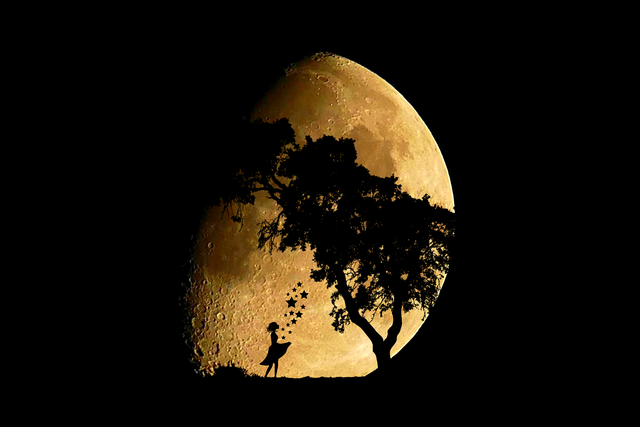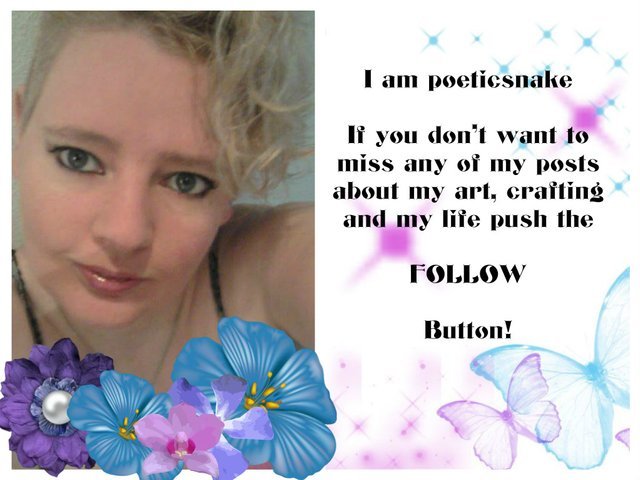Haiku 11 (Moon)

Source
A blanket of stars
You shine like a smaller sun
Ruling the black night
This Haiku was inspired by:
The fact that I love the MOON! Really? Oh hell yes! I come to life the moment the Moon starts to kiss the sky and waits to be surrounded by the bright dancing stars. Even as a child I had trouble sleeping at night because I was awake for some reason. As long as I can remember I sleep better when morning falls and I had fun during the darkness. Maybe I am not a snek but a vampire!! NO NO, I am a vampire snek! Thats IT! Must be! but I do love garlic! The moment darkness falls, my happiness rises. It's not that I really hate the Sun (Lies) but I just prefer the Moon over it a lot! The world changes when there is no light. Some might find it scary but I love to walk outside in the nights. The peace and quiet makes me calm. And no, I am not scared because I am a vampire snek remember?!!
I want to learn more about Haiku's and because of that I do the Haiku Zoo show together with Breeze and the haiku's that I share here are written with the help of the wonderful @thebugiq. He is always an amazing friend when it comes to helping me write and to poke my mushy brain! Thank you BUG!
What is Haiku?
Haiku is a form of poetry, first made popular in Japan, which has become appreciated around the world. Haiku poets are challenged to convey a vivid message in only 17 syllables.
One of the greatest Haiku poets was the Samurai, Basho (1644-94). Basho's father was also a Samurai from the Iga province. To become a Samurai, Basho served a local lord who was fond of writing.
Basho learned the style of writing Haiku, and wrote under the name, Sobo. During the years, Basho traveled throughout Japan writing and further developing the Haiku style. He died in Osaka, Japan in 1694, and continued to write haiku up until his death. A sample of Basho's haiku style:
Spring morning marvel
lovely nameless little hill
on a sea of mist
In Japan these poems are valued for their simplicity, openness, depth and lightness. Structural Rules
• Use exactly 17 syllables
• Syllables are arranged in three lines of 5-7-5
• Avoid similes and metaphors
• Refers to a season of the year
What is a Haiku about?
Haiku poems can describe anything, but are seldom complicated or hard to
understand. Almost all Haiku has a dominant impression, or main idea, that appeals strongly to one of the five senses.
The Seasonal Theme
Each Haiku must contain a kigo, a season word, which indicates what season of the year the Haiku is set. For example, blossoms would indicate spring, snow would give the idea of winter, mosquitos would imply summertime. The seasonal words isn't always that obvious, you might needs to consider the theme of the poem to find it.
For example:
Clouds appear and bring
to men a chance to rest from
looking at the moon
©Original Haiku Poeticsnake

It turned out as always beautiful and clear.
Beautiful haiku about the moon and the beauty of the night.
When the moon is full, it looks very nice in the night sky.!
Posted using Partiko Android